Understanding Frozen Salmon And Fresh Salmon
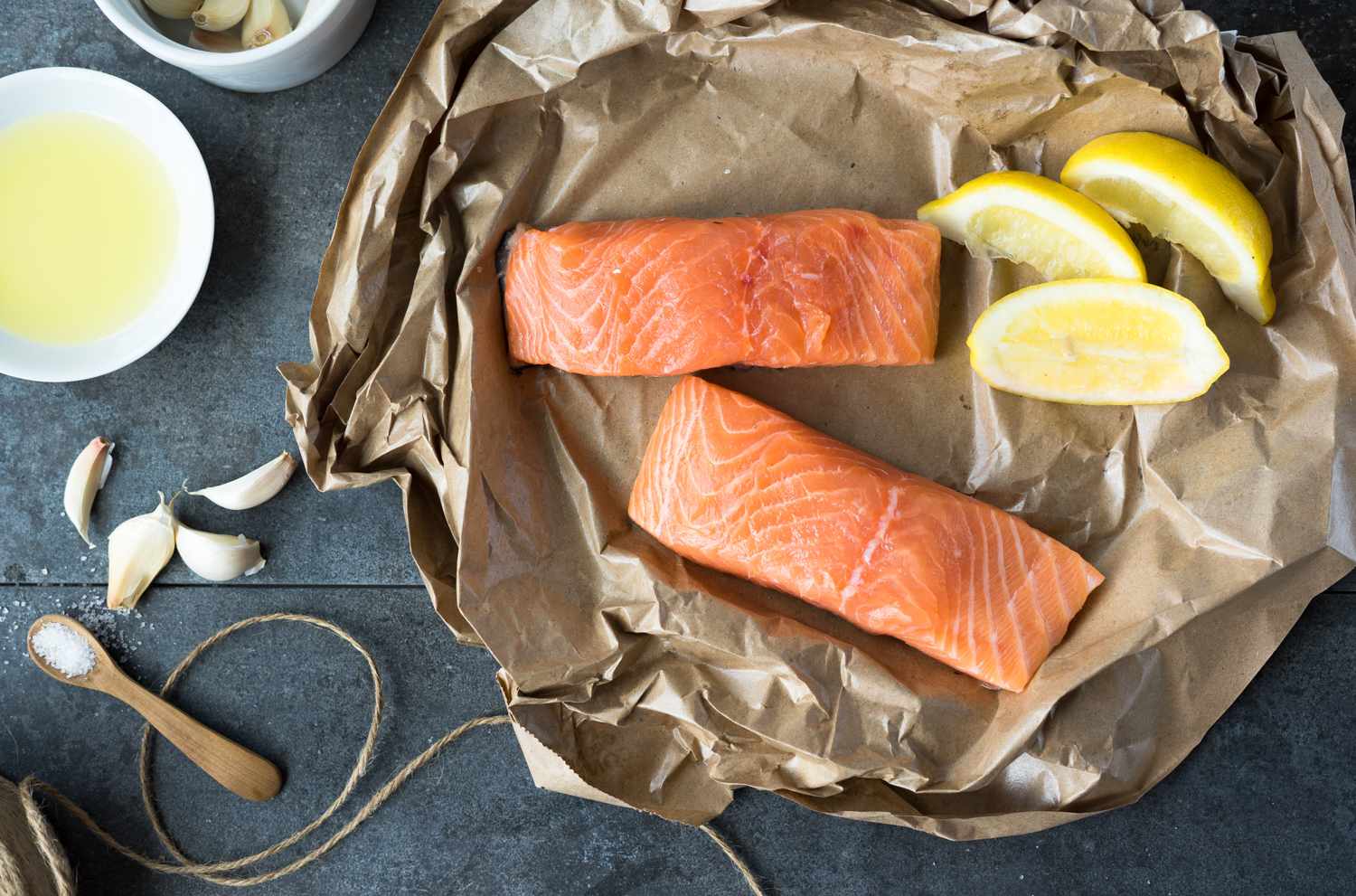
When it comes to salmon, understanding the difference between frozen and fresh is important. Frozen salmon undergoes a process called flash-freezing, which helps preserve its texture, taste, and freshness. On the other hand, fresh salmon refers to fish that has never been frozen before. It’s worth noting that some “fresh” salmon found in stores may actually be previously-frozen fish that has been thawed for display. Knowing these distinctions will help you make informed choices when it comes to selecting your preferred type of salmon.
Frozen Salmon Vs Fresh Salmon: Key Differences
When it comes to comparing frozen salmon and fresh salmon, there are a few key differences to consider. One major distinction is the process of freezing. Frozen salmon undergoes flash-freezing, which helps preserve its texture, taste, and freshness. On the other hand, fresh salmon refers to fish that has never been frozen before. It’s important to note that some “fresh” salmon found in stores may actually be previously-frozen fish that has been thawed for display. Understanding these differences can help you make informed choices when selecting your preferred type of salmon.
How Freezing Affects Salmon Taste And Texture
Freezing plays a crucial role in preserving the taste and texture of salmon. Flash-freezing locks in the natural flavors and moisture, ensuring that the fish remains tender and succulent when thawed and cooked. This process also prevents the formation of ice crystals, which can lead to a loss of moisture and affect the overall texture. By freezing salmon at its peak freshness, it maintains its quality for an extended period, allowing consumers to enjoy delicious tasting fish all year round.
Benefits Of Frozen Salmon
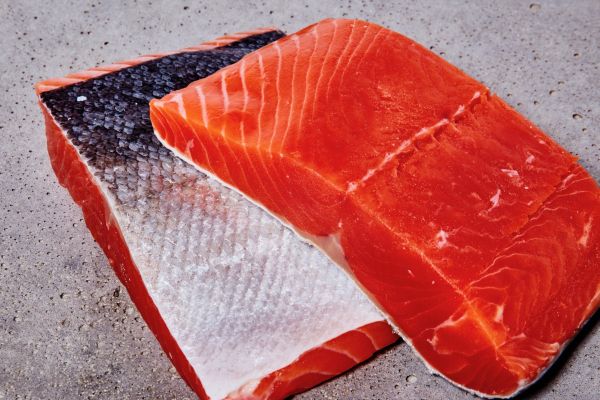
Frozen salmon offers numerous benefits for consumers. Firstly, it provides convenience and availability throughout the year, allowing individuals to enjoy salmon regardless of the season. Additionally, frozen salmon retains its nutritional value, making it a healthy choice. The freezing process locks in the natural flavors and moisture, resulting in tender and succulent fish when thawed and cooked. Moreover, buying high-quality frozen salmon from reputable vendors ensures that it has been properly preserved and processed. Overall, frozen salmon is a convenient, nutritious, and delicious option for seafood lovers.
Convenience And Availability Of Frozen Salmon
Frozen salmon offers unmatched convenience and availability. Unlike fresh salmon, which is only available during certain seasons, frozen salmon can be enjoyed year-round. This means that you can easily incorporate this nutritious fish into your meals whenever you want. Additionally, frozen salmon is readily accessible in grocery stores and online, making it a convenient option for busy individuals. With just a few clicks or a quick trip to the freezer section, you can have high-quality salmon ready to cook at any time.
Nutritional Value Of Frozen Salmon Compared To Fresh
When it comes to nutritional value, frozen salmon holds its own against fresh salmon. While there may be a slight difference in omega-3 fatty acid content due to the shorter storage time of fresh salmon, both options provide similar health benefits. Frozen salmon is still packed with protein, vitamins, and minerals that support overall well-being. Plus, it’s a convenient and affordable choice for those who may not have access to fresh seafood regularly. So whether you choose frozen or fresh, you can enjoy the nutritional goodness of salmon in your diet.
Advantages Of Fresh Salmon
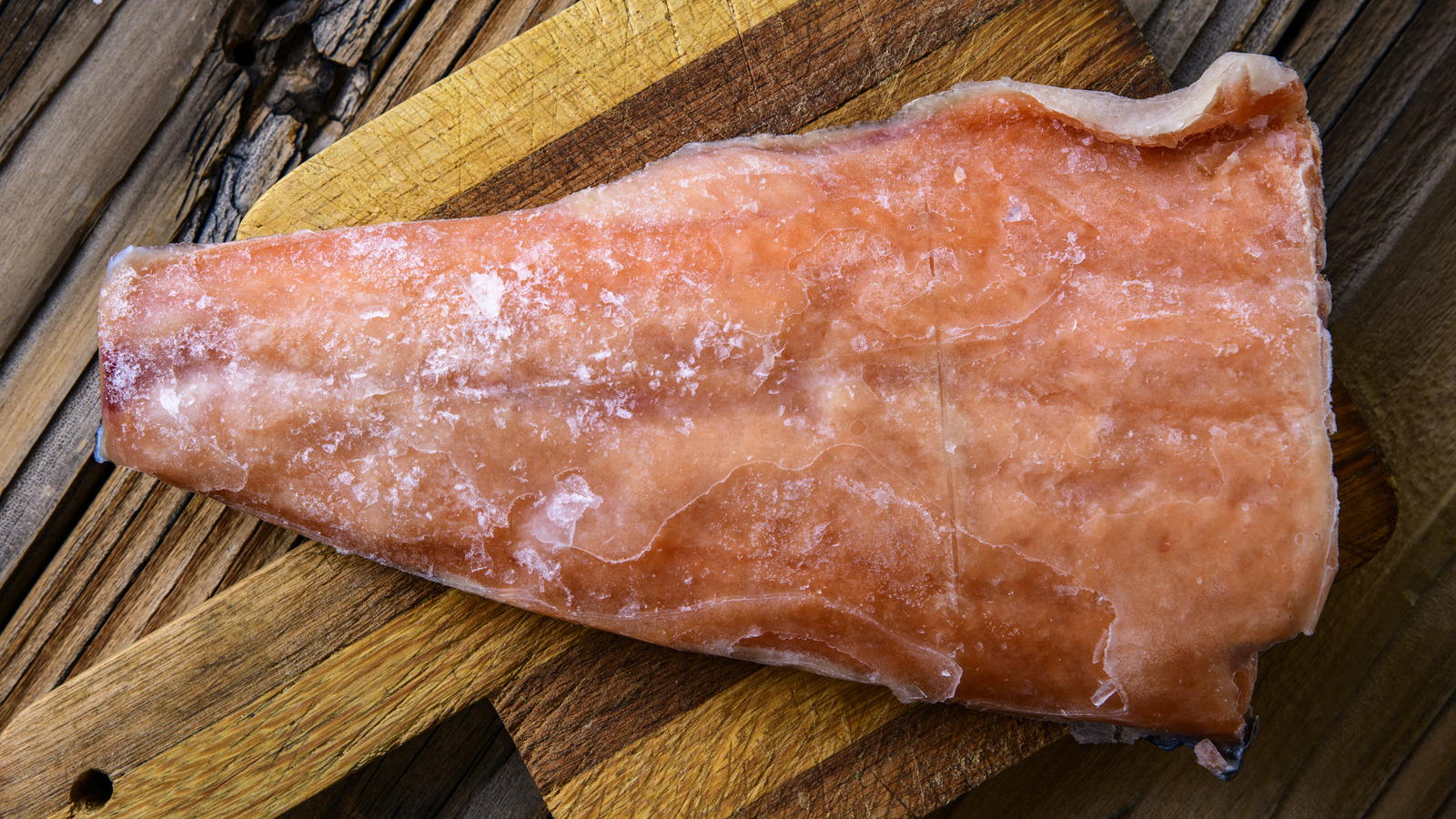
Fresh salmon offers several advantages that make it a popular choice among seafood enthusiasts. One of the main benefits is its superior taste and texture. Fresh salmon has a delicate, buttery flavor that is unmatched by frozen alternatives. Additionally, fresh salmon tends to have a firmer texture, making it ideal for grilling or pan-searing. Moreover, fresh salmon provides maximum nutritional value as it contains higher levels of omega-3 fatty acids and essential nutrients compared to frozen options. Overall, choosing fresh salmon ensures a premium dining experience with exceptional flavor and health benefits.
Fresh Salmon Taste And Texture Profile
Fresh salmon is known for its exceptional taste and texture. It has a delicate, buttery flavor that melts in your mouth, providing a satisfying culinary experience. The texture of fresh salmon is firm yet tender, allowing it to hold its shape during cooking while still being moist and flaky. Whether grilled, baked, or pan-seared, fresh salmon delivers a satisfying bite with every forkful. Its rich taste and luscious texture make it a favorite among seafood lovers seeking a premium dining experience.
Health Benefits Of Eating Fresh Salmon
Fresh salmon is not only delicious but also packed with numerous health benefits. It is a rich source of omega-3 fatty acids, which are essential for brain function and heart health. These healthy fats can help reduce inflammation in the body and lower the risk of chronic diseases like heart disease and arthritis. Fresh salmon is also high in protein, which aids in muscle growth and repair. Additionally, it contains vitamins D and B12, selenium, and potassium, which contribute to overall well-being. Including fresh salmon in your diet can support a healthy lifestyle and promote optimal health.
Cooking With Frozen Salmon
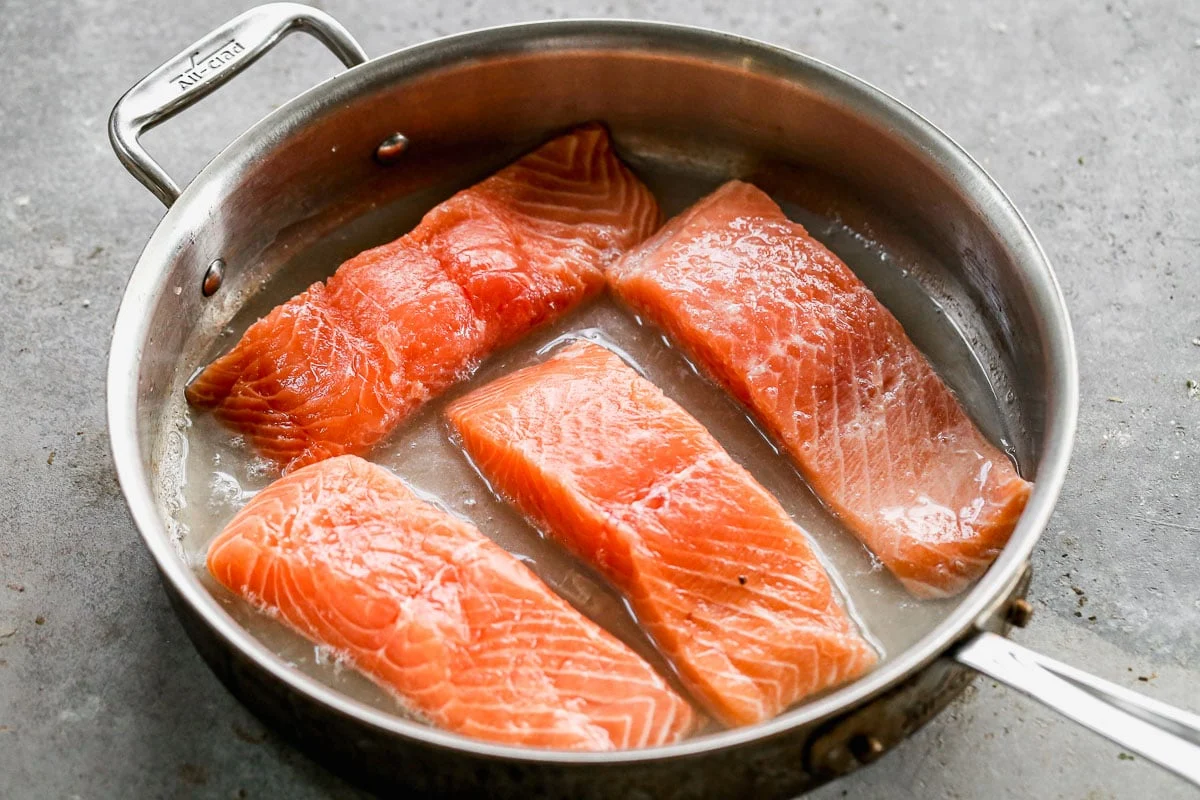
Cooking with frozen salmon is convenient and easy. Whether you’re grilling, baking, or pan-searing, there are plenty of delicious recipes to try. To ensure the best results, it’s important to thaw the salmon properly before cooking. This can be done by placing it in the refrigerator overnight or using the defrost function on your microwave. Once thawed, season the salmon with your favorite herbs and spices and cook it according to your desired method. Frozen salmon can be just as flavorful and satisfying as fresh salmon when cooked correctly.
Tips For Cooking Frozen Salmon
When cooking frozen salmon, there are a few tips to keep in mind. First, make sure to properly thaw the salmon before cooking. This can be done by placing it in the refrigerator overnight or using the defrost function on your microwave. Once thawed, pat the salmon dry with paper towels to remove any excess moisture. Season it with your favorite herbs and spices, such as dill or lemon pepper. For best results, cook the salmon on medium heat for about 10-12 minutes per inch of thickness, flipping halfway through. Enjoy your delicious cooked frozen salmon!
Best Practices For Thawing Frozen Salmon
Thawing frozen salmon properly is crucial to ensure the best taste and texture. Here are some best practices to follow:
- Refrigerator thawing: Place the frozen salmon in a sealed container or bag and let it thaw slowly in the refrigerator overnight. This method preserves the quality of the fish.
- Cold water thawing: If you’re short on time, you can use the cold water method. Place the salmon in a leak-proof bag and submerge it in cold water. Change the water every 30 minutes until fully thawed.
Remember to never thaw salmon at room temperature, as this can promote bacterial growth.
Cooking With Fresh Salmon
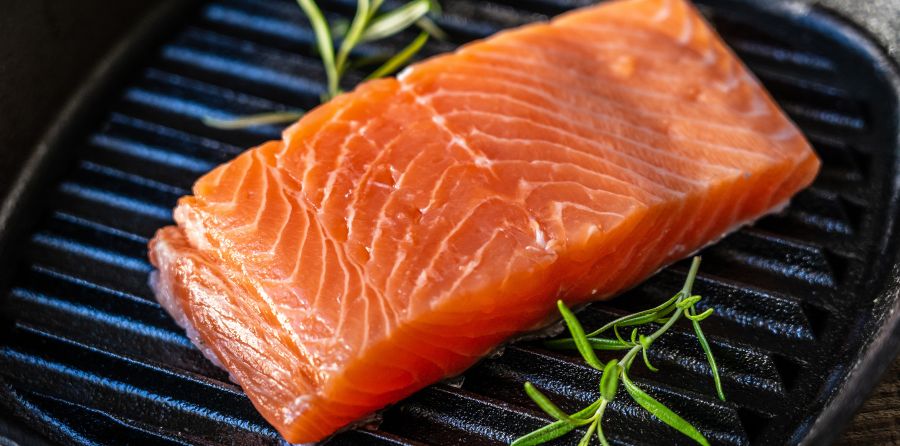
Cooking with fresh salmon offers a world of delicious possibilities. There are various methods for preparing fresh salmon, such as grilling, baking, or pan-searing. The rich and delicate flavor of fresh salmon pairs well with a variety of seasonings and sauces. It can be served as a main course or incorporated into salads, pasta dishes, or sushi rolls. Whether you’re looking to impress guests or enjoy a healthy weeknight meal, cooking with fresh salmon is sure to satisfy your taste buds.
Methods For Preparing Fresh Salmon
When it comes to preparing fresh salmon, there are numerous methods that can enhance its flavor and texture. Some popular options include grilling, baking, pan-searing, or even poaching. Each method offers a unique cooking experience and allows you to experiment with different seasonings and sauces. Grilling imparts a smoky flavor while baking helps retain the natural juices of the fish. Pan-searing creates a crispy skin, and poaching results in tender and moist salmon. Whichever method you choose, fresh salmon is versatile enough to be the star of any dish.
Recommended Cooking Techniques For Fresh Salmon
When it comes to cooking fresh salmon, there are a variety of techniques you can use to bring out its delicious flavor and tender texture. Some popular methods include grilling, baking, pan-searing, and poaching. Grilling imparts a smoky flavor and adds beautiful grill marks. Baking helps retain the natural juices of the fish and creates a moist and flaky texture. Pan-searing creates a crispy skin while keeping the flesh tender. Poaching is perfect for creating delicate and succulent salmon. Experiment with different seasonings and sauces to enhance the taste even further!
Conclusion
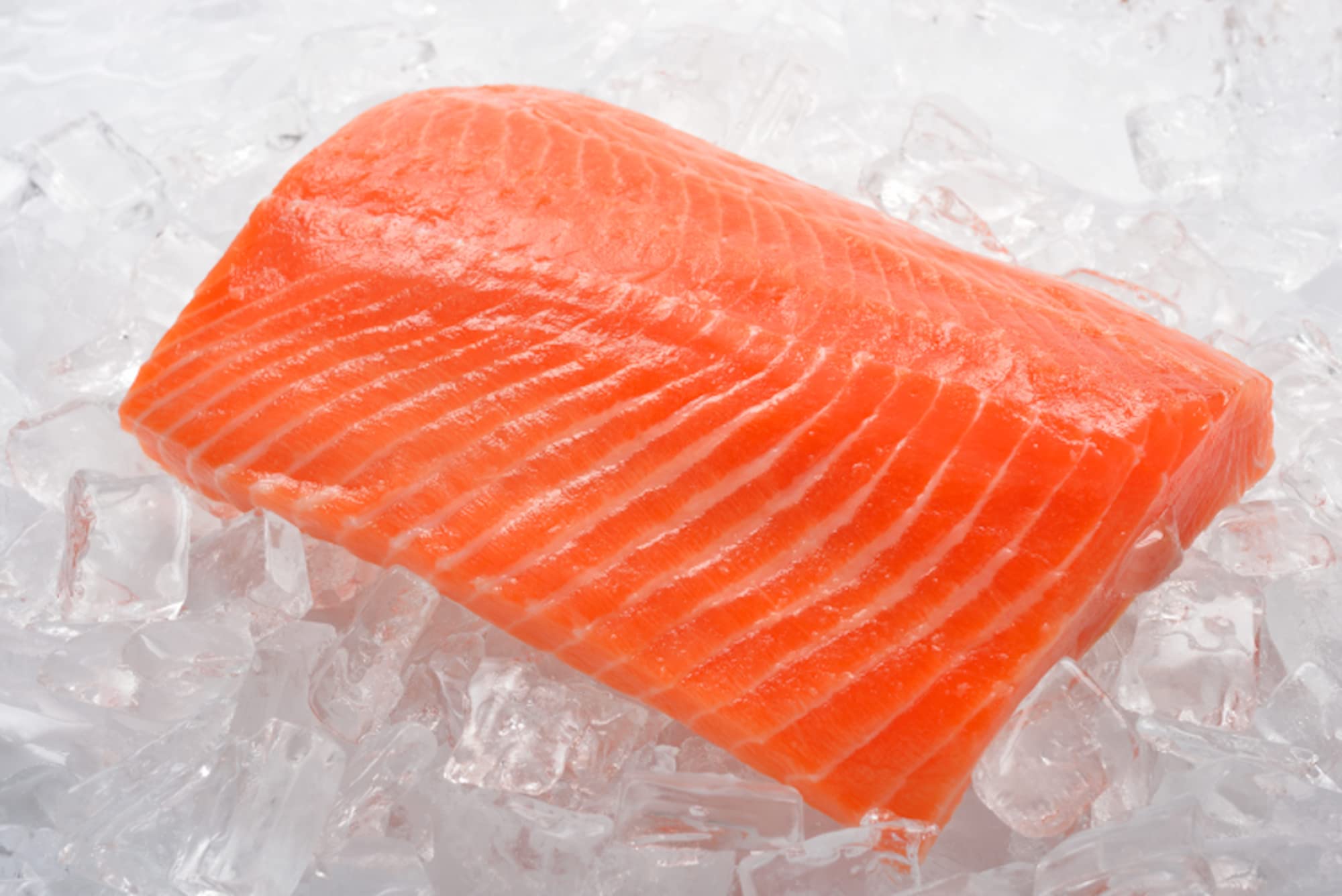
In conclusion, the choice between frozen salmon and fresh salmon ultimately depends on personal preferences and priorities. Both options have their own unique advantages. Fresh salmon offers unparalleled freshness, flavor, and a delicate texture. On the other hand, frozen salmon provides convenience, availability year-round, and can be just as nutritious as fresh salmon. Whether you prioritize taste or convenience, it’s important to consider factors such as availability, sustainability, and your cooking preferences when making your decision. Ultimately, enjoy the journey of exploring different types of salmon and discovering what suits your lifestyle best.
Comparison Of Taste And Texture Between Frozen Salmon And Fresh Salmon
When it comes to taste and texture, there are noticeable differences between frozen salmon and fresh salmon. Fresh salmon offers unparalleled freshness, with a delicate texture and a rich, buttery flavor. On the other hand, frozen salmon can have a slightly firmer texture and may not be as flavorful as fresh salmon. However, high-quality frozen salmon that has been properly thawed can still provide a satisfying eating experience. It’s important to note that individual preferences may vary, so it’s worth trying both options to see which one you prefer.
Factors To Consider When Choosing Between Frozen And Fresh Salmon
When deciding between frozen and fresh salmon, there are a few factors to consider. First, think about convenience and availability. Frozen salmon is often more readily accessible and can be stored for longer periods of time. Additionally, frozen salmon may be more budget-friendly compared to fresh options. On the other hand, if you prioritize taste and texture, fresh salmon may be the better choice. It offers a delicate texture and rich flavor that can’t always be replicated with frozen varieties. Ultimately, it’s important to weigh these factors based on your preferences and needs.
FAQ About Frozen Salmon Vs Fresh: Exploring The Taste And Texture
Q: What is the main difference in taste between frozen salmon and fresh salmon?
A: The main difference lies in the freshness and natural flavors. Fresh salmon tends to have a more delicate and vibrant taste compared to frozen salmon, which may have a slightly altered taste due to the freezing process.
Q: How does the texture of frozen salmon compare to fresh salmon?
A: Fresh salmon is usually firmer in texture and less likely to be mushy compared to frozen salmon, which can sometimes become softer and lose some of its original texture during the freezing and defrosting process.
Q: Is there a noticeable difference in nutritional value between frozen and fresh salmon?
A: Generally, both frozen and fresh salmon offer similar nutritional benefits such as being rich in omega-3 fatty acids and high-quality proteins. However, fresh salmon may retain slightly more nutrients compared to its frozen counterpart.
Q: Does frozen salmon have a shorter shelf life compared to fresh salmon?
A: Frozen salmon typically has a longer shelf life as freezing helps preserve the fish and prevent bacterial growth. Fresh salmon, on the other hand, should be consumed within a few days of purchase to ensure optimal freshness.
Q: Can frozen salmon be as good as fresh salmon when prepared correctly?
A: Yes, frozen salmon can still be delicious and nutritious if prepared properly. It is essential to thaw frozen salmon correctly and use appropriate cooking methods to maintain its taste and texture similar to fresh salmon.
Q: What is the best way to thaw frozen salmon to preserve its quality?
A: The recommended method to thaw frozen salmon is to place it in the refrigerator overnight. This slow thawing process helps retain the fish’s natural juices and texture, ensuring a more enjoyable culinary experience.

Welcome to Braddock Bay Tavern & Grill, where history, delicious cuisine, and stunning views come together to create an unforgettable experience. Our restaurant, situated on the picturesque edge of Lake Ontario, has a rich history that adds a unique charm to your dining experience. The roots of our establishment can be traced back to 1865, when it was first constructed as an icehouse. Over the years, it transformed into the historic Braddock Bay Hotel, becoming a beloved local landmark. Today, we take pride in preserving the building’s historical beauty, ensuring that every visit to our restaurant is a journey through time.